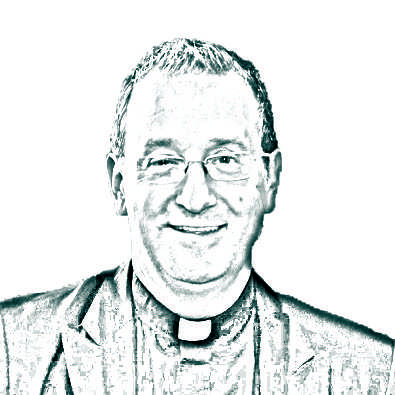Seeing the return of Hoyas to campus last week was a great pleasure, as we renew old acquaintances, make new ones and get back into the habits and schedules of college life once again. Hopefully we have come back rested, satisfied with our summer jobs and internships, and accompanied by great memories of vacation time with family and friends.
But we also come back to a campus overshadowed by a national political discourse even more divided than when we left it last spring. Furthermore, Catholics and non-Catholics alike return in a state of shock, burdened by betrayal in the wake of the Pennsylvania grand jury report on the sexual abuse of children by priests and the subsequent cover-up by bishops.
As I visited Georgetown University alumni across the country this summer, the topic of our broken politics took center stage in many of my conversations. The echo chambers of ideology have only gotten larger and louder, and Hoyas are feeling the discord. One alumna in Cleveland told me she had to step in between her two adult children arguing over the state of the nation. She was in tears by the viciousness of their attacks upon one another. Another alumnus noted that he now insists on rules of engagement before he invites people into his house. No matter where I was, alumni asked about our current students and the state of the campus community: Had this divisiveness infiltrated the student body? I shared their worry and anxiety about whether we are losing our ability to engage in civil discourse.
And I must say that the Pennsylvania report has shaken me and many of us at Georgetown and continues to undermine trust in the church. The report showed just how systemic the sexual abuse and cover-up was in the church in the seven decades before the “Charter for the Protection of Children and Young People” was signed by the Catholic bishops of the United States in 2002. This charter demands zero tolerance of sexual abuse of minors, removing those accused of it from ministry and putting in place strict reporting procedures.
The only consolation for me as a Jesuit priest is knowing that since the charter was signed after the first revelations of sexual abuse of minors were reported in 2001, the Catholic Church in the United States works with both civil and religious authorities to prevent sexual abuse and has been successful in rooting much of it out. Unfortunately, the horrific details of what was covered up before the charter once again reminds us of the struggles of so many survivors of abuse, and the ways in which many bishops failed them and the Catholic Church. This fact is all the more appalling because Catholic institutions — like Georgetown — have rightly earned a reputation as places that care for the vulnerable and nurture students in their desires to be agents of change in the world.
Amid political and religious upheaval, we at a Catholic and Jesuit university such as Georgetown must use our intellectual, spiritual and communal life together to commit ourselves to making the university a sanctuary for real dialogue on the political and religious issues of our time. That means listening to others who disagree with you. To paraphrase Pope Francis: Dialogue is not just a practice; it is a virtue. Dialogue is its own end, because if you are in dialogue with someone, you are listening to them and not demonizing them. The soul of dialogue, Francis says, is mutuality, seeking truth together. In the political disintegration that we witness cascading across the world, Georgetown must be a sanctuary of dialogue.
This sanctuary must also be a place for interrogating the tragedy of sexual abuse, and, whenever possible, for assisting the church so that these cover-ups never happen again. Georgetown labors to be part of the solution because it focuses its resources on the wider, more societal protection of all vulnerable persons. Whether in course work, in program events, in the many institutes on campus, even in the “Spirit of Georgetown” banners we see displayed everywhere as we start the academic year, we are reminded of our aspirations. Perhaps our pursuit of academic excellence, our sense of cura personalis and our desire to be people for others can deepen our bonds as we work toward justice, not only with Hoyas, but also with the larger community at our doorstep. Whatever political and religious upheavals followed us back to campus this fall, we need to commit to being our best selves and to making Georgetown a sanctuary of dialogue and justice.
Fr. Mark Bosco, S.J., is the vice president for mission and ministry at Georgetown University. As This Jesuit Sees It appears online every other Tuesday.














